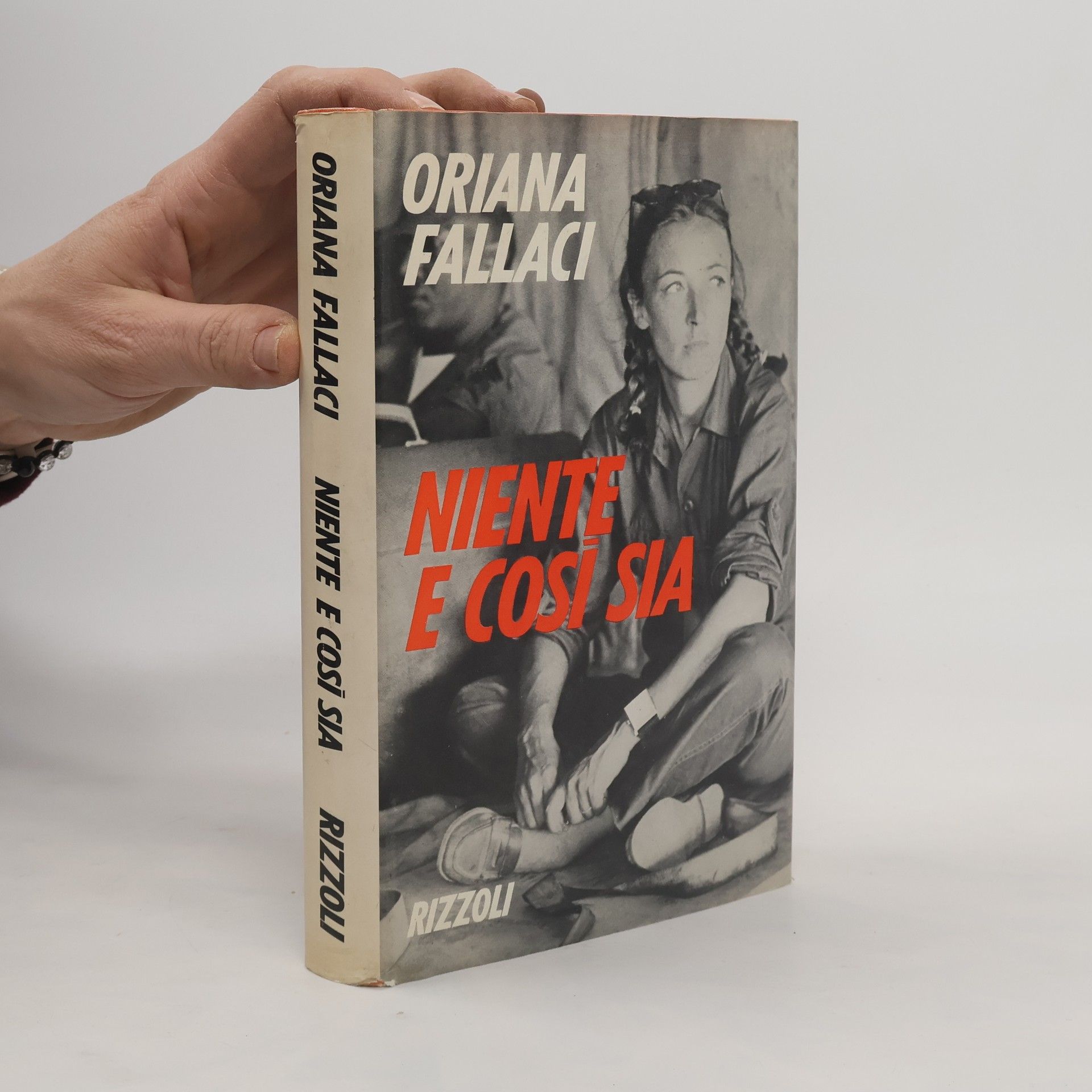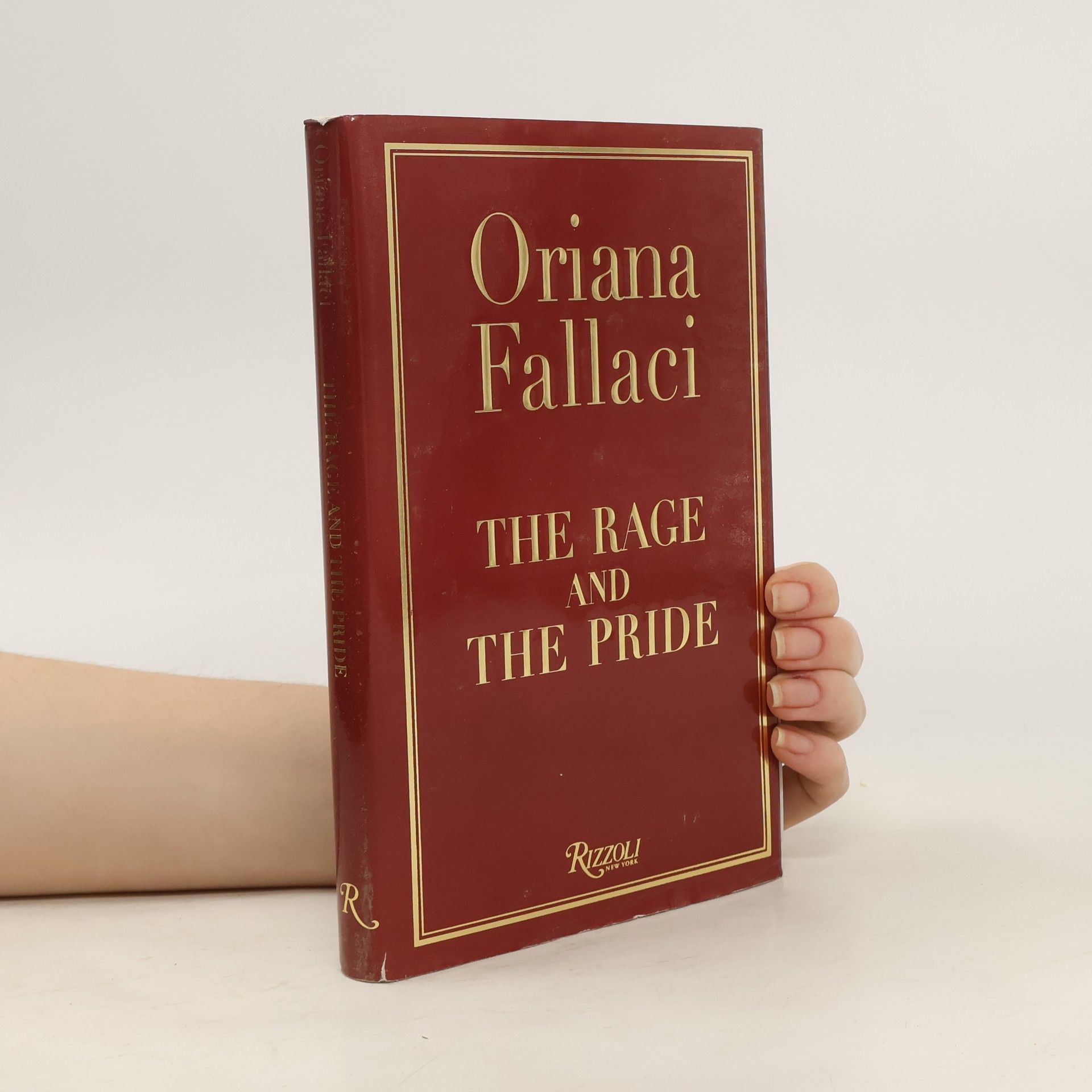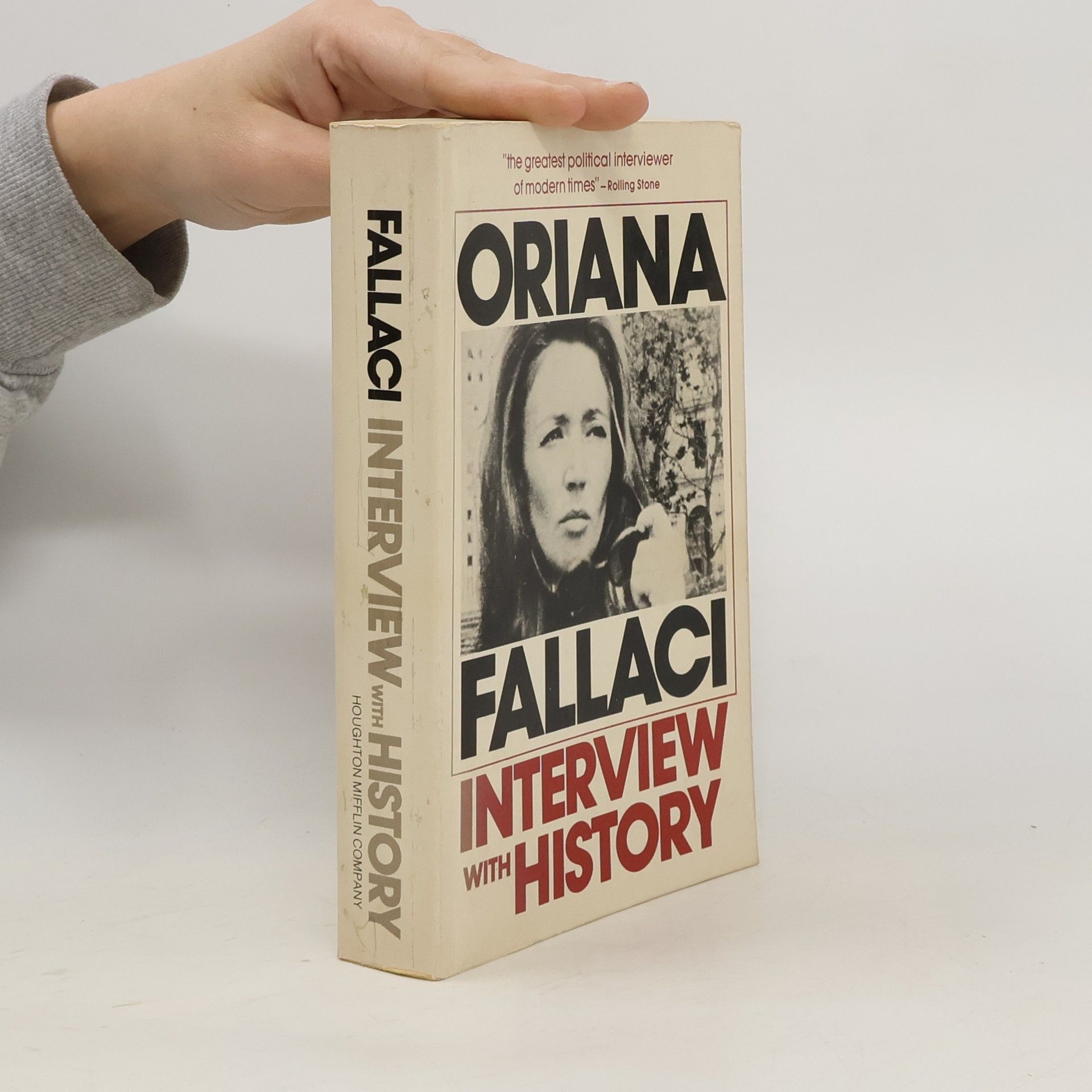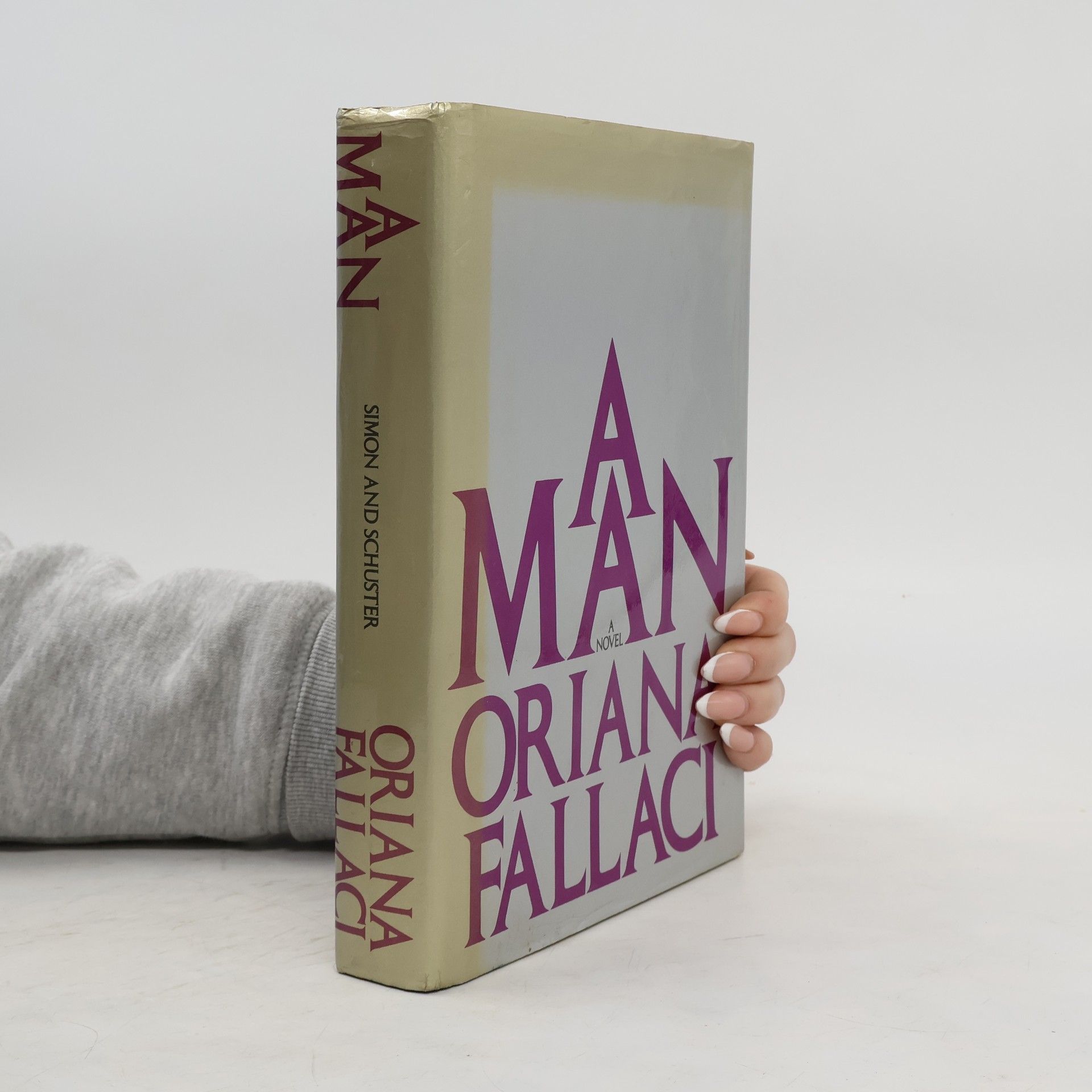List nenarodenému dieťaťu
- 136 pages
- 5 hours of reading
Oriana Fallaci was a journalist and novelist renowned for her fearless approach to war correspondence and political interviews. Her writings often delve into raw reality, exploring themes of war, politics, and the human struggle. Fallaci was known for her individualistic perspective, which at times unsettled feminists, alongside her idolization of heroic manhood. Her literary style is considered groundbreaking, shattering the conventional boundaries of interviewing and reporting.







Oriana Fallaci, na progu dziennikarskiej sławy, w swoim niepowtarzalnym stylu opisuje Hollywood lat 50. W czerwcu 1957 roku młoda włoska korespondentka przybywa do Hollywood z walizką spaghetti dla Sophii Loren. Ambitna reporterka wkracza w świat „fabryki gwiazd”, bezlitośnie obnażając środowisko, w którym liczą się jedynie sława, pieniądze, reklama i plotki. Fallaci przedstawia największe gwiazdy w sposób, w jaki nikt ich wcześniej nie znał – Marylin Monroe w krwawej sukni ślubnej, Marlon Brando jako woskowy posąg, Frank Sinatra bijący kelnerów za odmowę obsłużenia czarnoskórego klienta. Od Jamesa Deana po Audrey Hepburn, Fallaci demitologizuje bóstwa ekranu, ukazując ich ludzkie, czasem tragiczne oblicza. W Hollywood wszystko jest na widoku, a życie przypomina egzystencję z ukrytymi mikrofonami i kamerami. Niepublikowany zbiór korespondencji Fallaci to pozycja obowiązkowa dla fanów dziennikarki i „fabryki snów”. Hollywood to wykreowana magia, a Fallaci, jako przenikliwa obserwatorka, z fascynacją bada narodziny mitu gwiazd, jednocześnie z nieufnością. Jej opowieści, w tym o próbach przeprowadzenia wywiadu z Marilyn Monroe, to prawdziwe perełki reportażu.
Rozhovor so sebou samou s obsiahlym doslovom pod názvom Apokalypsa dokončila krátko predtým, ako prehrala svoj zápas s rakovinou. V netradičnom žánri autointerview sa nevyhýba osobným vyznaniam, úvahám nad svojím životom a chorobou, ale všetko smeruje k jej opisu mravného a intelektuálneho úpadkuzápadnej civilizácie. S charakteristickou otvorenosťou píše o islamskom terorizme, kríze európskych hodnôt, demaskuje pokrytectvo politikov a nastavuje zrkadlo rezignovanej západnej spoločnosti. Knihu rozhovorů se sebou samou připravila autorka nejprve pod titulem Oriana Fallaciová rozmlouvá s Orianou Fallaciovou a později ji v rozšířené a přepracované podobně přidala k novému textu – Apokalypse.
Tra i tavolini di via Veneto o nei teatri di posa di Cinecittà, in piazzetta a Capri o al Lido di Venezia, uno sguardo attento e ironico illumina i riti dell'Italia della dolce vita. Oriana Fallaci, giovane scrittrice allora impegnata come corrispondente dell'Europeo, coglie lo spirito di quegli anni e di chi li abita: intellettuali, gente di cinema, ma anche viveur, nobili decaduti, borghesi in cerca di gloria. In un grande affresco, scanzonato e senza preconcetti, si ritrovano, con i loro tic, speranze e aspirazioni, gli attori famosi – da Sordi a Gassman, da Gina Lollobrigida a Sofia Loren –, i registi – Visconti, Rossellini, Fellini, Antonioni –, gli scrittori, i grandi produttori e le stelline in cerca di gloria che hanno fatto la fortuna del cinema italiano nel mondo e hanno saputo rappresentare, forse più che in qualsiasi altra epoca, le caratteristiche del "genio italico".Oriana Fallaci li osserva, li incontra, li intervista, qualche volta ne diventa amica, a volte si fa odiare, ma sempre ce li restituisce vividi e umani, cogliendone i punti deboli e le grandezze, le idiosincrasie e le passioni. Un "dietro le quinte" che racconta un'epoca eccezionale attraverso la penna pungente di una grande scrittrice.
"Nella mia vita ho visto molte brutte cose. Molte. Sono nata in una tirannia, sono cresciuta in una guerra, e per gran parte della mia esistenza ho fatto il corrispondente di guerra. Per anni (in Vietnam, otto) ho vissuto al fronte. Ho seguito battaglie, ho subito sparatorie e cannoneggiamenti e bombardamenti, ho testimoniato l'umana crudeltà e imbecillità." Mai e poi mai Oriana avrebbe autorizzato una sua biografia, eppure non ha fatto altro che scrivere e raccontare la sua storia straordinaria. Lo ha fatto dalle trincee in Vietnam e dagli uffici della Casa Bianca così come dalla tenda di Gheddafi o dal quartier generale di Khomeini. Ha raccontato la storia del Novecento e con lucidità ha saputo riconoscere il più grande incubo del Ventunesimo secolo: il terrorismo globale. Ha affrontato i grandi leader politici senza mai inchinarsi di fronte al potere. "In ogni mio libro è accennata una traccia della mia biografia umana" ripeteva ai giornalisti che sfidavano la sua proverbiale diffidenza da addetta ai lavori. Così come i suoi quaderni che utilizzava per preparare meticolosamente ogni intervista contengono numerosi appunti autobiografici; brevi note che utilizzava ampliate nei suoi libri. Questi scritti restituiscono con precisione il carattere e il pensiero di una donna sui generis, capace di maltrattare grandi leader politici e divi di Hollywood, consegnando ai suoi lettori il testamento di una vita leggendaria.
Nos, az úgynevezett civilizációk-összeütközése, más néven a Nyugat és az Iszlám szeütközése nem más, mint az a harc, amiről János evangélista beszél". Mindezekkel kapcsolatban a szerző hangsúlyosan foglalkozik az amerikai és európai politikusok, kiemelten az olasz jobb- és baloldal kritikájával is. A borítóján "illiberális, inkorrekt, igaz" jelzőkkel illetett mű - előzményeihez hasonlóan - minden valószínűség szerint Magyarországon is heves vitákat fog kiváltani.
Unbequem, unerschrocken, kompromisslos – Oriana Fallci war die große Ikone der journalistischen Literatur.Oriana Fallaci führte ein Leben in Extremen: Als weltberühmte Reporterin und Autorin zahlreicher Bücher berichtete sie aus Kriegsgebieten und provozierte Staatsmänner, sie lebte den Widerstand gegen Ungerechtigkeit und Unterdrückung. Die Frage danach, was es heißt, eine Frau zu sein, begleitete sie ihr Leben lang. Sie arbeitete für die wichtigsten internationalen Zeitungen wie die Londoner Times, Life und die New York Times, und sprach mit zahlreichen bekannte Persönlichkeiten – ihr Interviewstil war so gefürchtet wie legendär. Fallacis Bücher, darunter Brief an ein nie geborenes Kind, Ein Mann und Inschallah wurden in 20 Sprachen übersetzt und in 31 Ländern veröffentlicht. Die erste autorisierte Biografie der streitbaren italienischen Journalistin und Schriftstellerin.